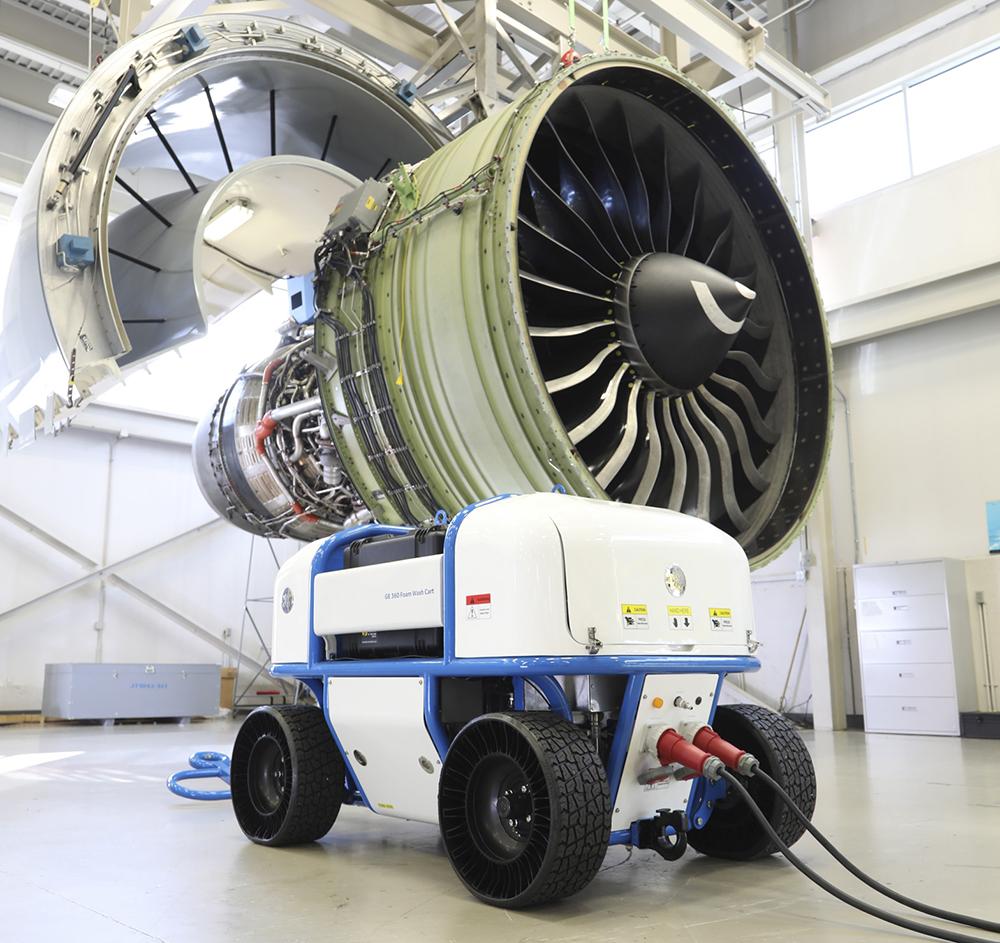GE Aviation’s Sustainable Engine Wash System Gains Traction in the Middle East

GE Aviation’s 360 Foam Wash engine cleaning system has recently gained significant traction in the Middle East as the company amps up its sustainability initiatives to reduce carbon dioxide (CO2) emissions in commercial flight.
According to GE, 1,000 aircraft engine washes have now been performed using 360 Foam Wash since the system began testing in 2017. These include washes performed as part of technology trials conducted by GE Aviation’s On Wing Support team at customer sites, as well as washes performed by customers that have implemented the technology within their maintenance processes, such as Etihad Airways, which obtained a technical license for 360 Foam Wash earlier this year.
In June, Royal Jordanian Airlines was awarded a technical license to use 360 Foam Wash on its GEnx-1B engines and GE says seven airlines now hold technical licenses for the system, including Middle Eastern carriers such as Air India, Qatar Airways, Royal Jordanian Airlines and Saudi Arabian Airlines.
“In the Middle East, airlines were key partners on the technology development to improve the performance of their GE-powered fleets,” says Tom Levin, vice president and general manager of GE Aviation’s After Market Strategic Solutions. These airlines helped GE Aviation test and mature the detergent solution and cleaning process for the system through test washes on their GE engines.
According to a spokesperson for GE Aviation, Middle Eastern interest in the system can likely be attributed to the high temperatures and dust within the region, which can cause buildups of deposits in aircraft engines. “One of the reasons we developed 360 Foam Wash was in response to customer requests in the Middle East for a solution that does better than water wash to clean the dust and dirt out of the engine and help restore engine performance,” says the spokesperson.
GE estimates that, compared to water washes, the 360 Foam Wash system can save approximately 15,900 gallons of fuel and 168 tons of CO2 emissions per year on GEnx-powered Boeing 787s, and 35,500 gallons of fuel and 377 tons of CO2 emissions per year on GE90-powered 777s.
In addition to using this engine wash technology to reduce fuel consumption and emissions, GE is involved in several other sustainability efforts aimed toward becoming a net zero company by 2050. These include development of engines with lower fuel consumption and CO2 emissions, hybrid electric propulsion systems and research into alternative jet fuels.





